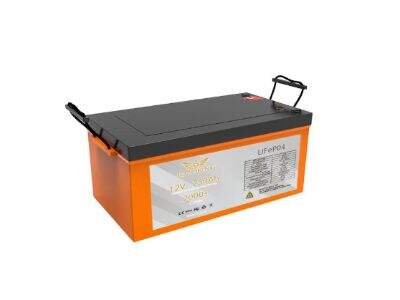The batteries also include lead-acid and generally can be found in things we see on a daily basis: cars, trucks and even some toys. When we don’t dispose of these batteries in the right way, they can hurt our environment. In this lesson, we will learn about recycling lead-acid batteries to keep our planet safe and clean.
Exploring The Impact Lead-Acid Batteries Have On The Environment
Lead-acid batteries are filled with toxic materials like lead and sulfuric acid. If we don’t dispose of these batteries properly, the chemicals inside can seep out and poison the soil and water. This can be bad for animals and plants that live in water and soil, and need them to be clean. Recycling lead-acid batteries can prevent these toxic substances from damaging our world.
Recycling Guide: How to Recycle Lead-Acid Batteries Safely – Step-by-Step
Take out the battery from the equipment: If recycling a lead-acid battery in a car or another piece of equipment, better take it out and put it in a secure location.
Take the battery to a recycling center: Search for a battery recycling center near you. They are trained in the proper disposal and recycling of lead-acid batteries.
Follow the recycling center’s lead: Once at the recycling center, take the lead from them as to how to properly dispoWhen at the recycling center, let them take the lead on how to properly dispose of your batteryse of the battery. They may request that you to leave the item there or deal with it in a certain manner.
Significance of Recycling of Lead-Acid Batteries
It's important how we get rid of those lead-acid batteries to prevent further harm to our environment. Recycling these batteries prevents toxic chemicals from seeping into the soil and water. That’s what keeps our planet clean and safe for life. It also saves precious resources that can be used to produce new batteries and other products.
How to Find an Ethical Battery Recycling Centre
Seek certified recycling providers: When you find a battery recycling center, make sure that it is certified to recycle lead-acid batteries. That is, they would know how to properly recycle these batteries.
Inquire about their recycling process: Before taking your battery to a recycling center, ask how they recycle batteries. And verify if they use responsible direct recycling practices for safely disposing of of lead-acid batteries.
How to Minimize Your Carbon Footprint from recycling of Lead-Acid Batteries
If you do recycle them, lead acid batteries can help reduce your carbon footprint. Recycling batteries allows the lead and other materials to be reprocessed and used again in the creation of new batteries and other products. This allows us not to have to pull quite as many new resources out of the earth, helping to reduce greenhouse gas emissions. It serves as an effortless way to help the environment through lead-acid battery recycling.
Table of Contents
- Exploring The Impact Lead-Acid Batteries Have On The Environment
- Recycling Guide: How to Recycle Lead-Acid Batteries Safely – Step-by-Step
- Significance of Recycling of Lead-Acid Batteries
- How to Find an Ethical Battery Recycling Centre
- How to Minimize Your Carbon Footprint from recycling of Lead-Acid Batteries








 EN
EN
 AR
AR
 BG
BG
 HR
HR
 CS
CS
 DA
DA
 NL
NL
 FI
FI
 FR
FR
 DE
DE
 EL
EL
 IT
IT
 JA
JA
 KO
KO
 NO
NO
 PL
PL
 PT
PT
 RO
RO
 RU
RU
 ES
ES
 SV
SV
 TL
TL
 ID
ID
 SR
SR
 SL
SL
 VI
VI
 SQ
SQ
 HU
HU
 TH
TH
 TR
TR
 MS
MS
 GA
GA
 MK
MK
 HY
HY
 AZ
AZ
 BN
BN
 MN
MN
 MY
MY
 KK
KK
 UZ
UZ
 JOZO GROUP
JOZO GROUP
 JOZO GROUP
JOZO GROUP


